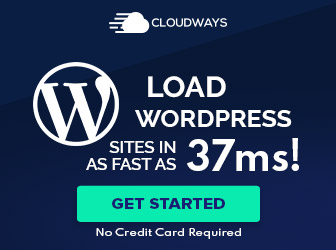Let’s say you know you need a website and want to try to build it on your own, but you’re not sure what you need to build a website.
Building a website or updating the one you have can be intimidating, time-consuming, and expensive—but it doesn’t have to be.
If you have the correct tools and help, it can be a seamless process. Good planning and project management helps reduce the time and financial investment. You have worked hard to build your business, now you need to showcase it!
You want to create a website that:
- Looks professional
- Attracts new customers through Google
- Showcases your products and services
- Highlights your reviews and testimonials
- Builds interest in your brand
- Increases sales
To get you started on the right foot, here are a couple of “must-have” checklists.
Brand Assets Checklists to Build a Website
In order to start your website, you need to have brand assets to showcase in order to attract, engage, and connect with your audience.
Do you have your brand assets ready?
Brand assets are elements (e.g., color scheme, tagline, font, and others) that help instantly identify a specific brand. Only when customers associate them with your brand do these elements become brand assets.
Elements like:
- Logo
- Colors
- Fonts
- Brand Guidelines
- Mission Statement
- Buyer Persona profile
Once you have a solid list of brand assets to use, the next step involves choosing the elements for your website build.

Checklist to Build a Website
Your choices here are important. Make sure you find out everything you can about each option in their areas before you dive in.
- Platform: The platform is the framework on which you build your website. A Web platform may refer to the server software, such as Microsoft’s IIS or Apache, or to the website authoring software such as Dreamweaver or WordPress. When researching the best option for your needs, make sure you take into account your budget, needs, and abilities.
- Domain registrar: Next, you need to buy and register your domain name. A domain registrar is a person or entity who helps you buy and register a domain. Most platforms offer the option to register your domain as part of their services. When buying a domain:
- Search for a catchy brand or domain name. Generally, the shorter the better.
- Check to make sure the name you want isn’t already a registered trademark or that the name isn’t already used by another provider. A Google search or a search on the USPTO can help.
- Remember to renew your domain in a timely manner. If you forget, and it expires, someone else will be able to purchase it. Most are automatically renewed, but something to be aware of.
- Check out this more complete guide on how to choose the right domain name for your business.
- Hosting provider: This is a business that provides the technologies and services needed for the website or webpage to be viewed on the Internet. This provider gives your website a place to live and makes it accessible to visitors. When choosing a hosting provider look for:
- Speed. Users expect your website to load within 2 seconds. If it takes longer, they are very likely to leave. Google also uses page speed as a ranking factor. This means that slow site performance can hurt your search rankings as well as drive your customers away!
- Security. Website hosting servers should be equipped with powerful firewalls and constant monitoring. SSL, or Secure Socket Layer, certificates provide an extra layer of security by encrypting the information that travels between your server and the user’s browser. SSL is becoming standard practice for all websites, especially for those that sell products or accept payments, and something your website host should support.
- Support. Make sure your website host offers 24/7 monitoring and support and are readily accessible in case of an outage or other problem.
- Allowance for Growth. Find a host that can accommodate expansion. If you plan on needing more resources over time as your website traffic and content grow, don’t box yourself in with a host that doesn’t provide bandwidth for that growth.
- Price. Pricing for web hosting can range from “free”, to a few dollars a month to thousands a month. A cheap deal probably means limited flexibility and access to resources, which could equal performance issues. Make sure you know your hosting requirements up-front, so you get what you need, at a price that fits your budget.
- Theme: This is the set of templates, modules, global content, and style settings that can be used to create a website. Themes, like Astra, determine all design components, e.g, page layouts, backgrounds, color palettes, sizing, positioning, headers and footers, and typography.
- Website builder: This is a tool that allows you to build a website without coding experience. Website builders are easy to use, affordable, and allow room for growth. Most website builders now are all-in-one solutions, so you get domain registration, web hosting, and the platform and building and editing tools for one monthly fee.
Examples of all-in-one website builders and platforms:
- WordPress
- Shopify
- NameHero
- A2 Hosting
- Elementor
What Does It Cost to Build a Website
According to Websitesetup.org, here is the 2022 cost breakdown to build your own site. (They used WordPress for this example)
Upfront:
- Domain: $10
- Host: $70 per year
- Design: $0-$60
- Functionality: $0-$100+
Total: **$80-$240 (or more).
A business website requires regular maintenance since you don’t want to risk losing sensitive customer details to hackers (and paying huge fines!). So, factor in the following costs too:
Annual Maintenance:
- Domain name renewal: $10
- Hosting renewal: $70
- Anti-malware/security software: $100-$200
- Paid apps/plug-ins: $0-100
Total: $180-$250 (or more) per year.
If you have the time, tools, and resources, building your website yourself can save you money.
Today, there are so many easy-to-use, economical options to help you build a professional, stand-out site that showcases your brand, attracts your ideal audience, and drives sales.
However, even with modern website building software, building a website can be overwhelming. Looking for a little help?
At Klever Strategies, we can help you create that perfect website.
From branding help with our FREE Brand Guidelines worksheet, to our website design services, to everything in between—we are here for you.
Klever Strategies helps small business owners gain clarity on their business goals. We help with the implementation of digital marketing strategies, including SEO-focused website design, and fine-tune these strategies to replicate what works year after year. Get in touch today.
Related



